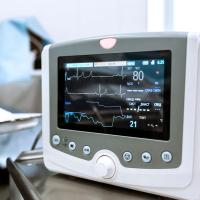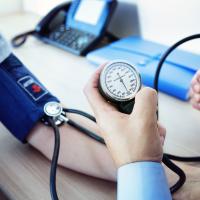Atrial Fibrillation
Screening and management of Atrial Fibrillation is available at Glebe Hill Family Practice and GHFP Nurture.
What is AF?
Atrial fibrillation (AF) is an important heart condition that affects an estimated 460 000 Australians. AF is a type of abnormal heart rhythm (arrhythmia) of the heart. Atrial fibrillation starts in the upper chambers of your heart (the atria) and causes them to quiver (fibrillate), instead of beating normally. This can mean your heart doesn’t pump blood around your body as efficiently as it should.
Some people have a single episode of atrial fibrillation. For others it can come and go (sporadic or paroxysmal), or be permanent (persistent).
It’s important to diagnose and treat atrial fibrillation because it can cause blood clots that can block blood supply to your vital organs and lead to a stroke. It may also be a sign that you have heart disease.
Causes of AF
The most common causes of atrial fibrillation are:
- long-term high blood pressure
- coronary heart disease (blocked arteries)
- valvular heart disease (problems with your heart valves).
It is sometimes caused by hyperthyroidism (when your thyroid is too active). This cause can be treated.
Atrial fibrillation can also be associated with chest trauma or surgery, or too much caffeine or alcohol. Some medicines or diseases (like pneumonia) can trigger atrial fibrillation. Sometimes there is no known cause.
Symptoms of AF
Atrial fibrillation can cause symptoms like:
- a 'fluttering' heartbeat
- an irregular pulse
- weakness
- tiredness
- dizziness.
Diagnosis of AF
If your doctor suspects you have atrial fibrillation, they may do tests like an electrocardiogram (ECG) or echocardiogram.
People aged 65 and over should consider screening for AF by having a heart check including an ECG - ask your General Practitioner or Practice Nurse to do this for you next time you're at the Practice.
Treatment of AF
Treating AF is important because people with AF have a 5 times higher risk of stroke.
Your doctor will decide on the best treatment, depending on:
- how bad your symptoms are
- the cause (if known)
- how long you have had the problem
- your risk of stroke and other problems
- the risks of each treatment.
Medicines
Most people with atrial fibrillation will need to take medicines. Your doctor will decide the best ones. Ask your doctor for information on these medicines. They may prescribe medicines to restore or maintain a normal heart beat in the short or long term. Most medicines usually have to be taken for the long term. It’s important to take medicines as prescribed.
Procedures
Your doctor may also recommend procedures like:
- electrical cardioversion
- catheter ablation
- surgery (very rare) to try to make your heart beat normally.
Lifestyle changes
As with other heart conditions the best way to manage your heart health is to make sure you see your doctor regularly and reduce the risks. It’s important to manage the risk factors for heart disease to avoid more heart problems. You may also need to reduce your caffeine intake. Talk with your doctor about what’s best for you.


